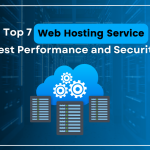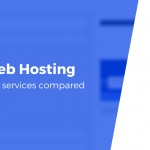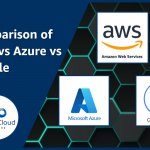In an ever-evolving digital landscape, web hosting plays a pivotal role in ensuring the accessibility, reliability, and performance of websites and online applications. As technology continues to advance and consumer demands evolve, industry leaders and experts are at the forefront of shaping the future of web hosting. In this article, we’ll delve into the insights and opinions of industry leaders on the future direction of web hosting in the United States.
THE RISE OF CLOUD NATIVE ARCHITECTURES
Cloud native architectures have emerged as a dominant trend in web hosting, offering unparalleled scalability, flexibility, and resilience for modern applications. Industry leaders anticipate a continued shift towards cloud native technologies, with businesses increasingly adopting containerization, microservices, and serverless computing to optimize resource utilization and accelerate deployment cycles. As organizations embrace cloud native principles, traditional hosting models are expected to give way to more dynamic and agile infrastructure solutions.
HYBRID AND MULTI-CLOUD ENVIRONMENTS
Hybrid and multi-cloud environments are becoming increasingly prevalent as businesses seek to leverage the strengths of multiple cloud providers while mitigating risks and avoiding vendor lock-in. Industry leaders emphasize the importance of interoperability and portability in hybrid and multi-cloud architectures, enabling seamless workload migration and workload placement based on performance, cost, and regulatory requirements. As organizations embrace hybrid and multi-cloud strategies, the role of web hosting providers will evolve to provide integrated solutions that span across diverse cloud ecosystems.
EDGE COMPUTING AND DISTRIBUTED INFRASTRUCTURE
Edge computing is poised to revolutionize web hosting by bringing computation and data storage closer to the point of use, reducing latency and improving responsiveness for end-users. Industry leaders predict a proliferation of edge computing infrastructure, with edge data centers and content delivery networks (CDNs) playing a crucial role in delivering high-performance web hosting services. As the demand for low-latency applications grows, web hosting providers will need to invest in edge computing capabilities to meet the evolving needs of their customers.
SECURITY AND COMPLIANCE REQUIREMENTS
With the increasing prevalence of cyber threats and regulatory requirements, security and compliance remain top priorities for web hosting providers. Industry leaders stress the importance of implementing robust security measures, including encryption, access controls, and threat detection systems, to protect sensitive data and mitigate the risk of cyber attacks. Compliance with industry standards and regulations, such as GDPR and HIPAA, will continue to drive investments in security and compliance initiatives, ensuring that web hosting providers maintain the trust and confidence of their customers.
ARTIFICIAL INTELLIGENCE AND AUTOMATION
Artificial intelligence (AI) and automation are transforming web hosting operations, enabling providers to streamline processes, optimize performance, and enhance the customer experience. Industry leaders foresee AI-driven solutions playing a critical role in capacity planning, predictive maintenance, and proactive support, enabling web hosting providers to anticipate and address issues before they impact customers. As AI technologies mature, web hosting providers will leverage automation to improve efficiency, reduce costs, and deliver more responsive and reliable services to their customers.
SUSTAINABILITY AND ENVIRONMENTAL RESPONSIBILITY
Sustainability and environmental responsibility are becoming increasingly important considerations for web hosting providers and their customers. Industry leaders advocate for sustainable practices, such as energy-efficient data centers, renewable energy sourcing, and carbon offset programs, to minimize the environmental impact of web hosting operations. As businesses prioritize sustainability goals, web hosting providers will need to demonstrate their commitment to environmental stewardship and offer eco-friendly hosting solutions that align with the values of their customers.
CONCLUSION: NAVIGATING THE FUTURE OF WEB HOSTING
As the digital landscape continues to evolve, web hosting providers must adapt to meet the evolving needs and expectations of their customers. By embracing cloud native architectures, hybrid and multi-cloud environments, edge computing, security and compliance requirements, AI and automation, and sustainability initiatives, web hosting providers can position themselves for success in the dynamic and competitive web hosting market. With insights from industry leaders and experts guiding their strategies, web hosting providers can navigate the complexities of the future and drive innovation in web hosting services.














